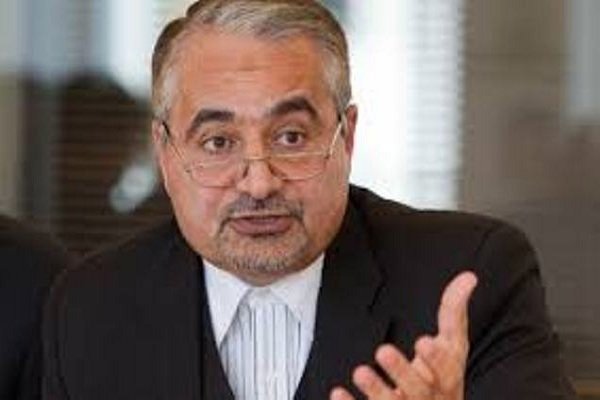Iran will wait for Trump to lose power

Before his speech at the United Nations General Assembly, U.S. President Donald Trump tweeted: "Despite requests, I have no plans to meet Iranian President Hassan Rouhani. Maybe someday in the future. I am sure he is an absolutely lovely man!"
The tweet came after weeks of speculations that a meeting between Trump and Iranian President Hassan Rouhani might take place on the sidelines of the UNGA sessions.
Indeed, such a meeting did not happen, not because the U.S. president tweeted his refusal, but because the Iranian side is simply not interested. Last year, the Iranian government had to turn down requests from the White House for such a meeting eight times and this year President Rouhani again emphasized that his government is not interested in holding direct talks with the present U.S. administration.
There are several reasons why Iran really doesn't want to talk to Trump.
First, it sees no reason to abandon the 2015 Joint Comprehensive Plan of Action (JCPOA), which took many years of hard negotiations to conclude. Former U.S. President Barack Obama also saw the JCPOA as the "most robust and intrusive inspections and transparency regime, ever negotiated for any nuclear programme in history," based on "unprecedented verification."
The provisions of the deal addressed the main concern of the international community: that Iran's nuclear programme remains compliant with the Nuclear Non-Proliferation Treaty and limits its work to civilian projects. It was ratified by all governments involved and endorsed by the United Nation's Security Council in Resolution 2231.
Over the past three years, the International Atomic Energy Agency (IAEA) has reported that Iran remains in full compliance with the provisions of the JCPOA deal. Given that Iran has stuck to its end of the deal and all sides have recognized it as a comprehensive and rigorous agreement, it does not see a reason to negotiate a different one.
Second, the current U.S. administration has been employing hawkish policies, war-mongering and constant threats as a strategy to bring Iran to the negotiating table. Under the influence of Israel, it is seeking to establish an anti-Iranian military alliance in the Middle East.
While such an approach might have worked with North Korea, it is highly unlikely that it would yield a positive result with Iran. This behavior has left Tehran doubting the readiness of the Trump administration to negotiate in earnest. Furthermore, by withdrawing from a deal approved by a previous U.S. administration and the UN Security Council, the world's top rule-enforcing entity, the Trump White House casts doubt on its own commitment to observing agreements and being a reliable negotiating partner.
Third, the present U.S. administration has been seemingly pushing for regime change in Iran. Top officials such as Secretary of State Mike Pompeo and National Security Adviser John Bolton have been at the forefront of such efforts. What government on earth would engage with a partner that is publicly pushing for its violent overthrow?
Fourth, Iran would not negotiate with a hostile government which might itself soon lose power. The possibility of Trump getting impeached is growing by the day. The process of impeachment could soon be triggered over violations of the emoluments clauses of the U.S. Constitution or over alleged complicity with Russian interference in the 2016 presidential election. And if the Democrats gain control of Congress in the November midterm vote, that possibility would get that much higher.
But even if Trump does not get impeached, he is likely to lose his bid for re-election in 2020. His current approval rating is lower than that of any of the nine presidents who preceded him. The fact that leaders of the whole world burst out laughing when he claimed in his General Assembly speech that his administration has accomplished more than any other in U.S. history is highly indicative of where he stands in the eyes of the world and his own people.
Given these unfavorable circumstances, Iran may wait for Trump to lose power and seek to engage with his successor who in all likelihood would be a better negotiating partner. And the Iranian government is not in a hurry at all. Its European partners, who stood by the JCPOA and their commitments despite pressure from the Trump administration, just offered to establish a legal entity that will process payments to Iran and effectively circumvent the U.S. sanctions. China and Russia are also likely to join this new arrangement.
In other words, Iran can easily wait another two years for a new administration to be elected in the U.S. In the meantime, if Trump somehow decides to drastically change his rhetoric and approach, the Iranian government might reconsider and talk to him.
